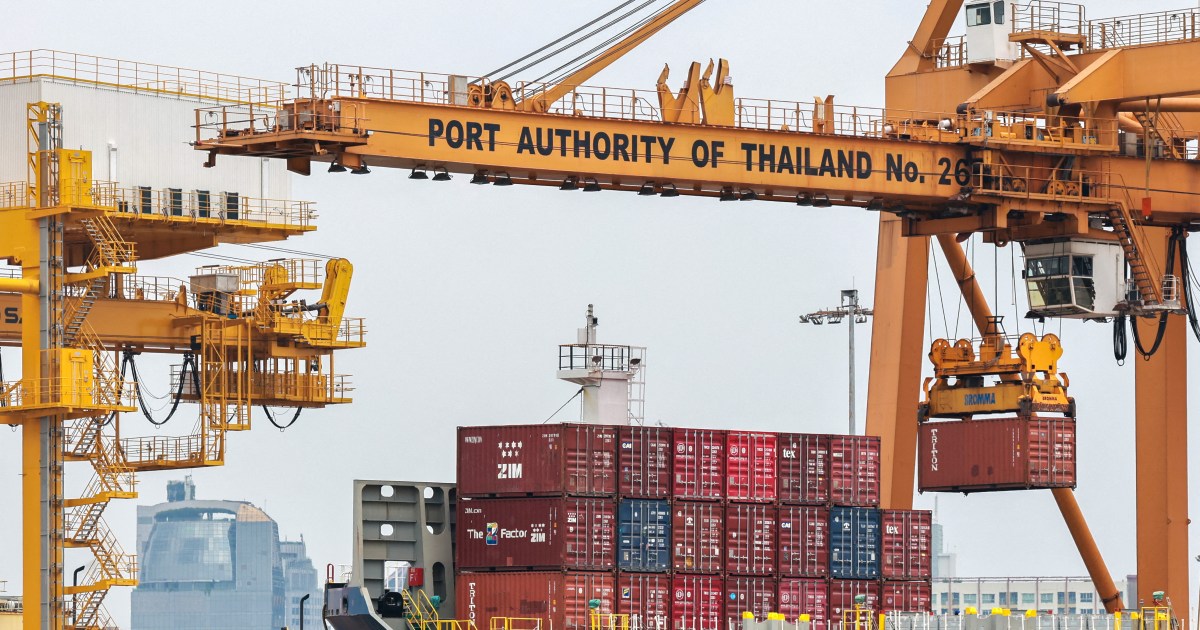Three people in Southeast Asia who are aware of the situation said that it is anticipated that tougher US trade sanctions on goods that come from one country and are re-shipped from another will not immediately follow new US tariffs, which eases a major source of concern.
Southeast Asian nations, including Vietnam and Thailand, have been specifically targeted by White House officials because of their alleged involvement in facilitating the so-called transshipment of Chinese goods into the US, which would incur higher tariffs if they were shipped directly from China.
From Thursday through to the end of an executive order, US President Donald Trump’s administration will impose tariffs on goods from dozens of nations, causing additional duties of 40% on products deemed to have been illegally rerouted to conceal their country of origin. However, it did not provide a definition for transshipment.
About 19% of the largest economies in Southeast Asia’s are now subject to tariffs, many of which have significantly decreased from the previously threatened rates, on imports from the US.
Even if the components are entirely imported from another country, such as China, according to current US customs guidance, goods from those nations that have not signed free trade agreements with Washington can be labelled as being made there.
Some officials in Southeast Asia have informed exporters that the current regulations still apply because there are no updated US guidelines on origin or definitions of what transshipment means.
That effectively limits transshipment  cases to illegal activities, such as the use of forged export certificates or documents obtained defrauded.
Because there aren’t any regulations in place for transshipment yet, the Thai Ministry of Commerce’s Department of Foreign Trade, Arada Fuangtong, told Reuters on Thursday. “All exported goods] from Thailand are currently subject to a 19 percent rate.”
According to a person with knowledge of the conversation, US officials in Vietnam also stated that businessmen would be subject to a 20% tariff on Vietnamese goods even if they were entirely made with Chinese components and only assembled there.
Before the new wave of US tariffs, trade consultants advised clients to export at least 40% of local content to the US, despite the fact that the rules are vague. One of them said that meant to be on the safe side.
A request for comment was not immediately addressed by the US embassy in Vietnam. A request for comment outside of US working hours was not immediately addressed by the US Trade Representative.
A consultant from Vietnam said that “goods that are defined by US customs as transshipped are subject to 40 percent duties, but that is only applicable to old definitions” .
In order to speak more freely, both people declined to be named.
China’s dependence
Repackaging typically doesn’t lead to a “substantial transformation,” but assembly may, depending on how complex the operations are.
If other nations can follow this lenient interpretation of transshipment, it’s not clear if it will.
The economic ministries of Indonesia, Malaysia, the Philippines, Vietnam, and Singapore did not respond to requests for comment on the situation right away.
Southeast Asian manufacturers, which rely heavily on Chinese components, have been unsure of what transshipment would mean in Washington for months.
Even when goods are legitimately transformed in Southeast Asian countries, there are still questions about whether that would include goods with a sizable, but undefined, share of components or raw materials.
Multiple investment consultants warned that a strict definition of transshipment and   might come later.
According to an executive order signed by Trump last week, the US will “publish a list of nations and specific facilities used in circumvention schemes every six months.”
That will “inform commercial due diligence, national security reviews, and public procurement,” it said.
Dezan Shira and Associates, an investment consultancy, said Marco Forster, director for Southeast Asia, “the message from Washington is deterrence.”
Source: Aljazeera

Leave a Reply